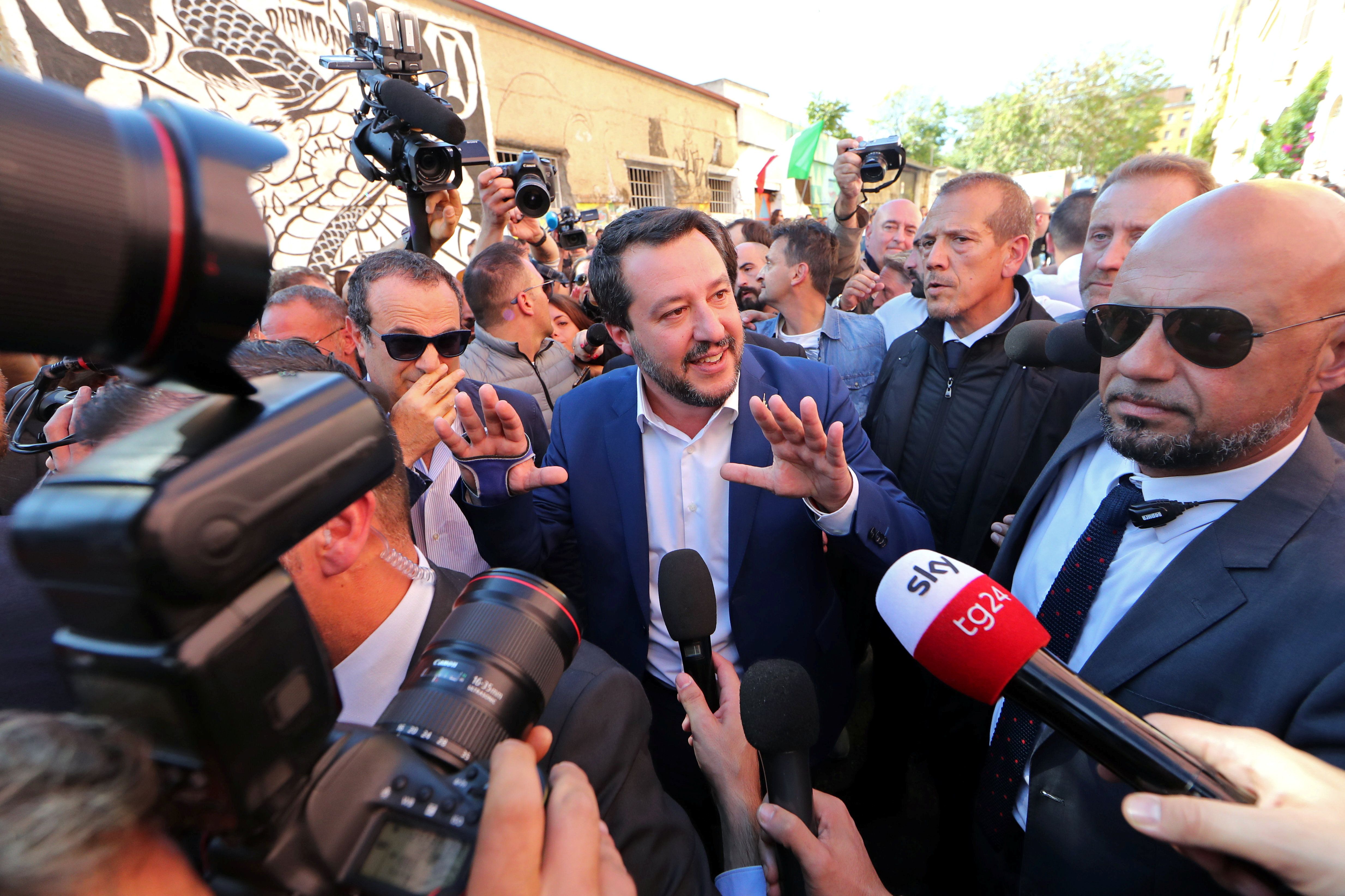October 26, 2018
Speaking of populism, here are three recent stories from Italy, a country at the center of various European controversies. One centers on domestic policy, the second on squabbles with the populists next door, and the third on a coming showdown with the European Union.
Story 1: Three migrants from Senegal and Nigeria have been arrested following the alleged rape and murder of an Italian girl inside a drug den in Rome. Interior Minister Matteo Salvini, Italy’s lead anti-immigrant populist and a figure of growing notoriety across Europe, appeared twice at the crime scene in a single day to maximize attention on the event. He was greeted there by both supporters and hecklers.
These three migrants may be guilty of this heinous crime. Or they may be innocent. Or they may have participated in the crime alongside Italians. From a political standpoint, it won’t matter. Salvini’s supporters will accept his accusations against the migrants at face value. His critics will search for alternative explanations.
This is the current political climate in Italy—and in other countries, as well.
Story 2: The region of South Tyrol, part of the Austrian Hapsburg empire until the close of World War I, still includes many people who speak German. Austria’s far-right Freedom Party has floated a plan to give these people, and those who speak a local language known as Ladin, Austrian citizenship.
Trouble is… South Tyrol has been part of Italy for 99 years, and many Italians, including Salvini, say Austria has no right to grant Italians dual citizenship. Complicating matters further, the Austrian offer only applies to residents of South Tyrol who speak German (60 percent) or Ladin (4 percent). Italian speakers need not apply.
The irony is that nationalists in Italy and Austria will shake fists at one another over this controversy, but both groups benefit from it with supporters at home. It’s a win-win political fight—unless and until it’s resolved, and someone must publicly accept defeat.
Story 3: Finally, there is the story that will impact the largest number of people. The European Commission took the unprecedented step this week of rejecting a proposed member-state budget, this one from Italy. The two parties currently in power in Italy were delighted with the news.
The Five-Star Movement, the largest vote-getter at the last election, wants to offer struggling Italian families, particularly in Italy’s poorer south, with universal basic income. Its junior coalition partner, Lega, wants tax cuts for the more prosperous northern provinces. Together, they submitted a budget which the Commission says will blow up Italy’s already high debt and threaten Europe’s economic stability.
Why are Five-Star and Lega so happy? EU rejection of this budget allows them to blame European bureaucrats for economic hardship in Europe and to present themselves to Italian voters and taxpayers as fearless protectors of Italian independence against the bullies from Brussels.
The informal response from Five-Star and Lega officials has been a closed fist waving the Italian flag. Their formal response will come in the next two weeks. The bad news for Italy: Financial markets may decide in the meantime that Italy is no longer a good bet, dramatically raising borrowing costs for the government and political trouble for all concerned.
More For You
- YouTube
At the 62nd Munich Security Conference in Munich, GZERO’s Tony Maciulis spoke with Benedikt Franke, Vice Chairman and CEO of the Munich Security Conference, to discuss whether the post-1945 global order is under strain or already unraveling.
Most Popular
- YouTube
Zelensky agrees: elections matter #PUPPETREGIME
As more small businesses move sales, payments, and customer relationships online, they unlock new opportunities, but they also become easier targets for cyber-criminals and other threat actors.
TOKYO, JAPAN - FEBRUARY 8: Japan's Prime Minister Sanae Takaichi, leader of the ruling Liberal Democratic Party (LDP), places a red paper rose on the name of an elected candidate at the LDP headquarters on general election day on February 08, 2026 in Tokyo, Japan. Voters across the country headed to polls today as Japan's Lower House election was held.
Photo by Kim Kyung-Hoon - Pool/Getty Images
When Japanese Prime Minister Sanae Takaichi called snap elections last month, it was a big gamble. Holding a winter election just four months into her tenure with no real policy record to run on?
© 2025 GZERO Media. All Rights Reserved | A Eurasia Group media company.
